Sales enablement has come a long way from playbooks and PowerPoints. Today’s enablement leaders are expected to move fast, personalize training, and prove impact. But the question remains: how do you actually make reps better at selling, at scale?
The answer is becoming clearer by the day: AI-powered role-play. What used to be a niche experiment is now becoming the backbone of modern sales enablement. Here’s why.
Why Traditional Role-Play Fails to Scale
Role-play has always been one of the most effective ways to build selling skills. But let’s be honest: it’s hard to scale.
- Managers don’t have time to run dozens of sessions per week.
- Peer role-plays vary wildly in quality.
- Feedback is often delayed, vague, or sugarcoated.
- Reps rarely get enough reps to truly improve.
As teams grow, these limitations compound. And enablement leaders are left stuck—either sacrificing quality for reach, or reach for quality.
Enter AI Role-Play: A New Standard
AI role-play solves this scalability problem. Platforms like Copient.ai simulate realistic buyer conversations using avatars and generative AI. Reps can practice anytime, anywhere, and get instant, objective feedback.
These tools don’t just mimic live role-plays. They improve on them:
- Scenarios are consistent, ensuring every rep practices the same key skills.
- Feedback is data-driven, not dependent on a manager’s mood or availability.
- Usage is trackable, so you can see who’s improving and where coaching is needed.
In short: AI role-play brings structure, scale, and insight to something that used to be chaotic and hard to manage.
What This Means for Enablement Leaders
The best sales enablement teams are using AI role-play as their practice layer—embedded in onboarding, reinforcement, and ongoing certifications. It’s no longer a “nice to have.” It’s the difference between training that sticks and training that’s forgotten.
Here’s what they’re unlocking:
- Faster onboarding: New hires practice core conversations in week one instead of shadowing aimlessly.
- Ongoing skill development: Reps sharpen specific skills weekly with targeted AI drills.
- Performance visibility: Training and enablement teams can track progress and correlate training to outcomes.
It’s Not Just a Tool. It’s a Culture Shift.
Perhaps most importantly, AI role-play is creating a culture of proactive practice with top sales teams. Instead of waiting for feedback, reps seek it out. Instead of dreading role-play, they lean in.
It also communicates to the team that skill-building is an ongoing priority, not a one-and-done training event.
Final Thought
If you’re leading sales training and enablement and not using AI role-play, you’re likely falling behind. This isn’t about replacing managers or training teams. It’s about giving them the leverage they need to coach at scale, drive performance, and build a high-performing sales culture.
AI role-play is here. And it’s changing everything.

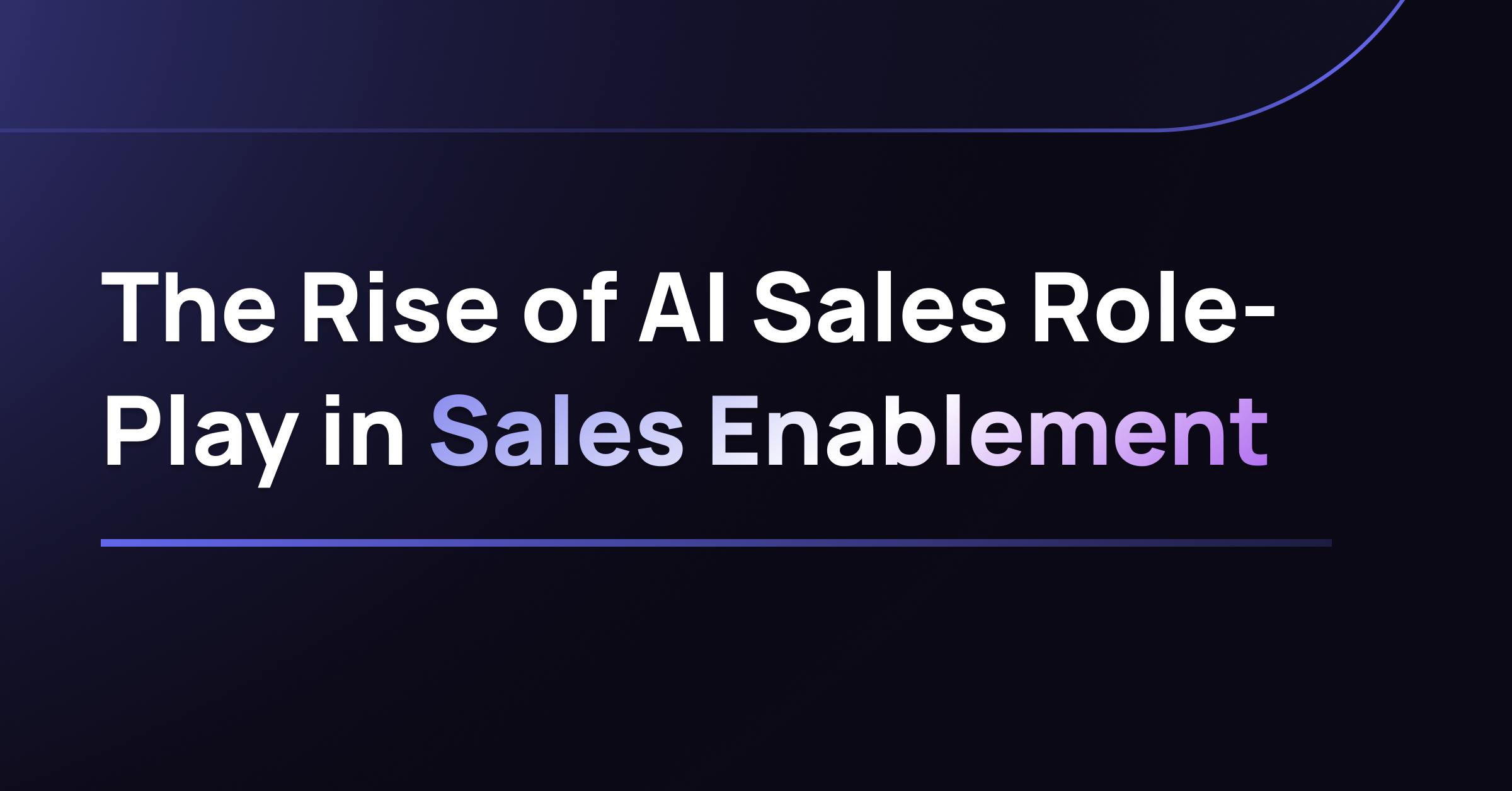




.png)
.png)
.png)
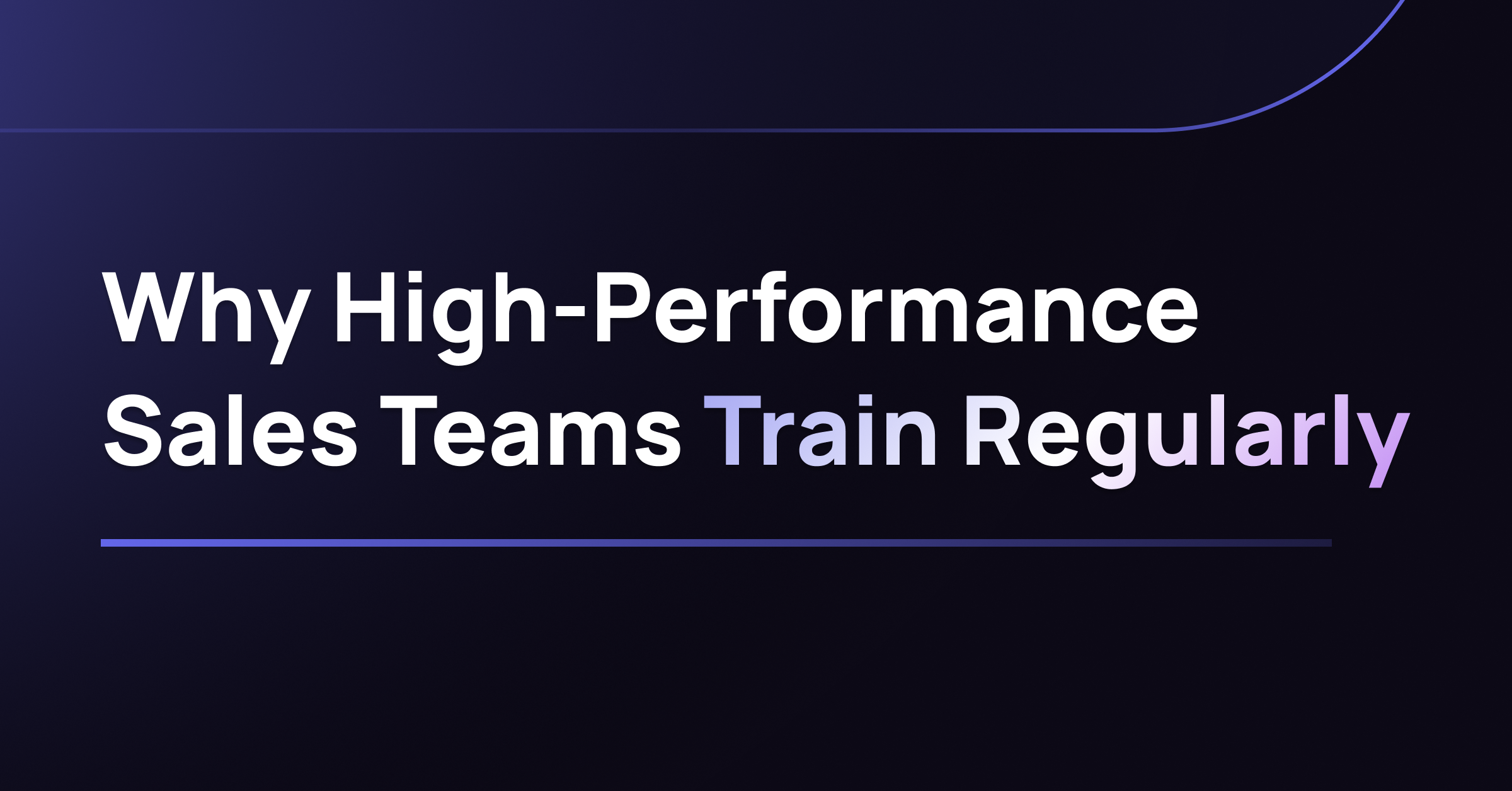
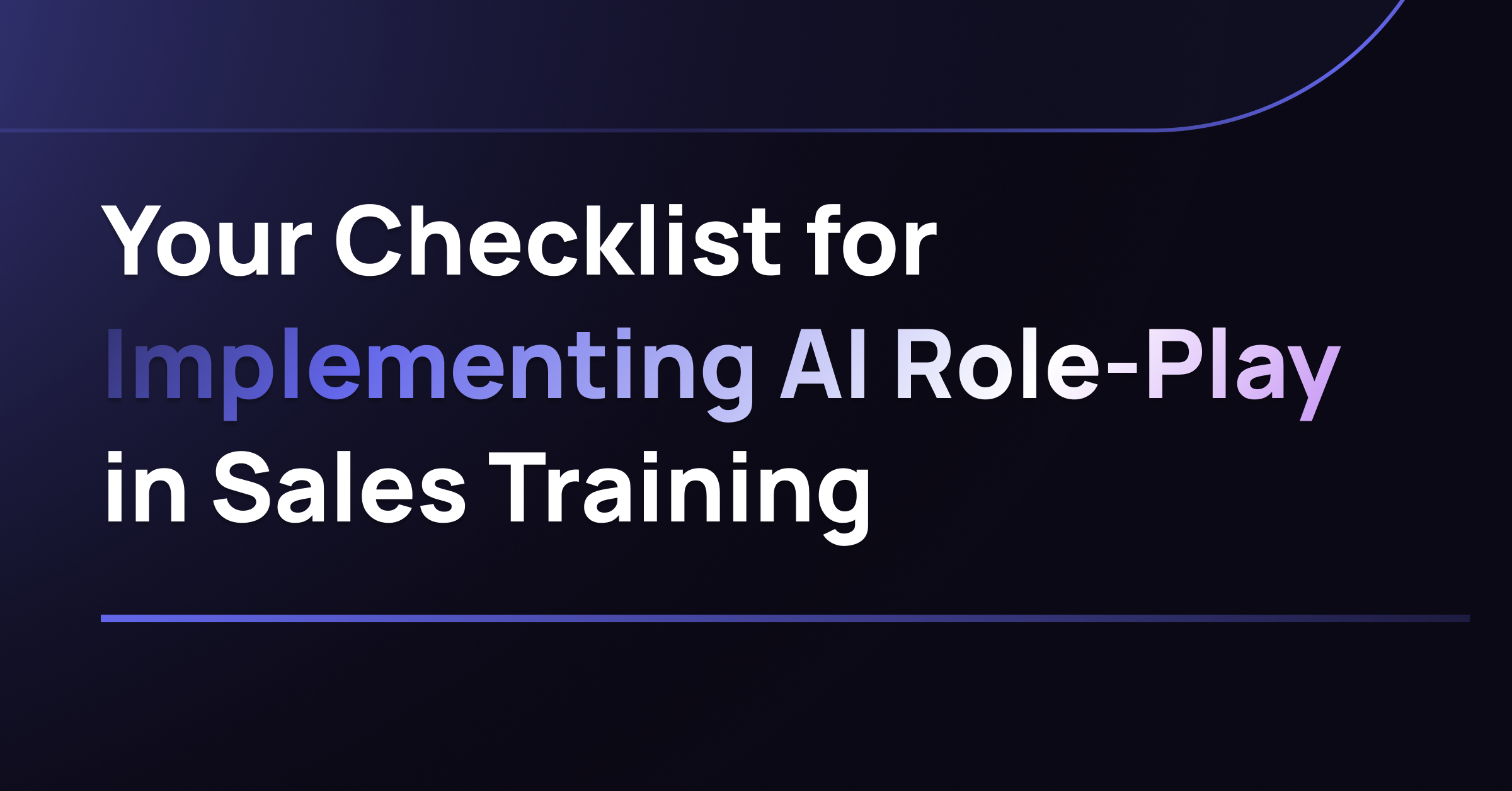
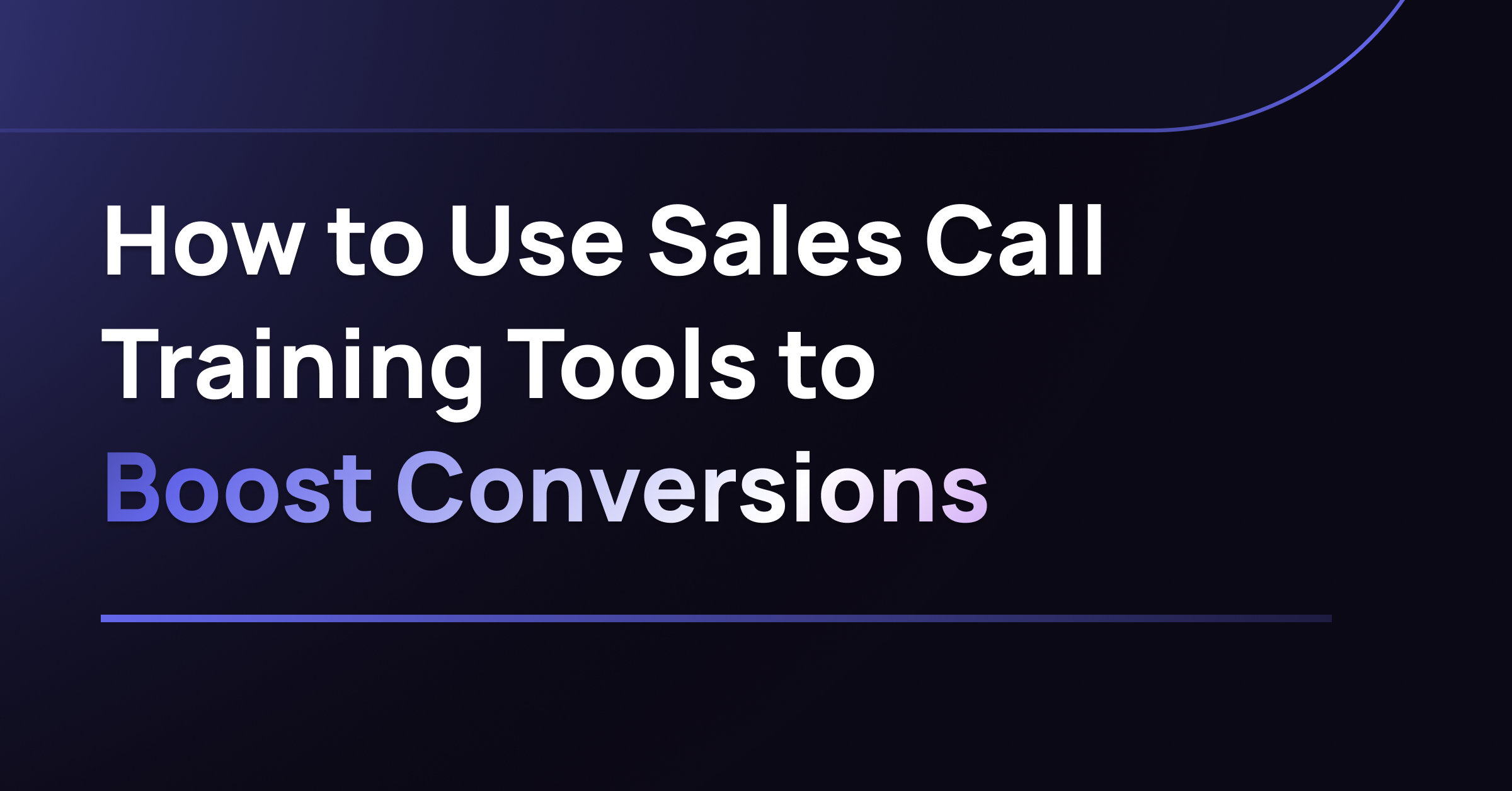
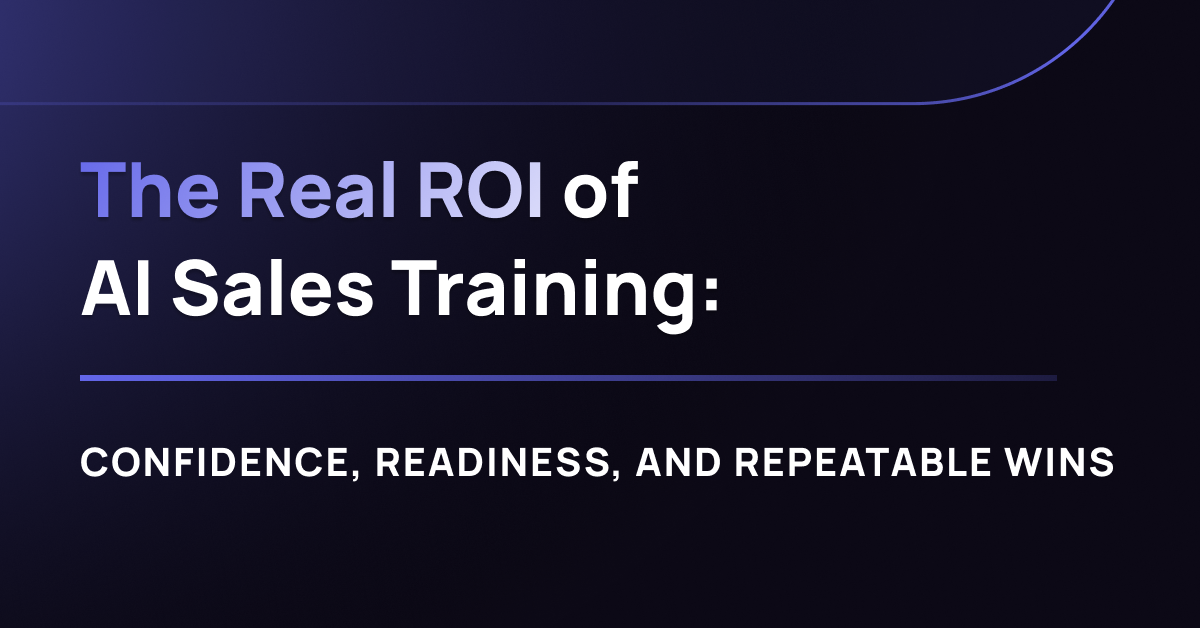
.png)






.png)



.avif)